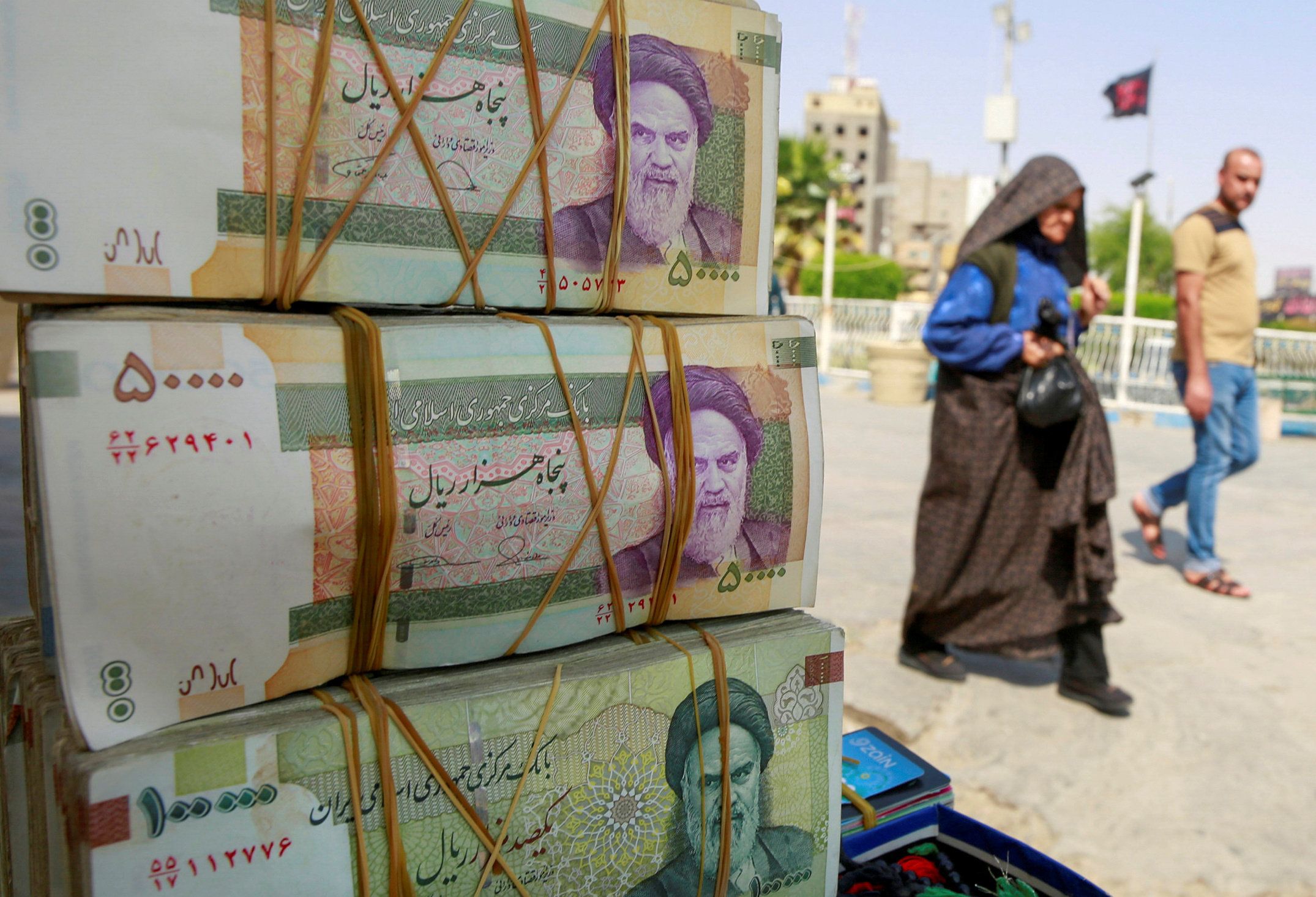May 06, 2020
0000: With the value of the Iranian rial plummeting amid low oil prices and crippling US sanctions, the government has decided to simply slash four zeroes off of the value of its currency. While moves like this are an accounting trick, the thinking is that they can have a positive psychological effect for consumers and lenders. Over the next several years, Iran's rial will be replaced by a new currency called the toman.
59: Russian President Vladimir Putin's approval has fallen to 59 percent. That's not bad by global standards, but it's the lowest mark for him since he first took power two decades ago. Plummeting oil prices and rising coronavirus deaths are taking a toll on his power.
7.4: The European Commission predicts that the coronavirus crisis will cause the EU's economy to shrink by 7.4 percent this year, the largest annual contraction in the bloc's history. On the upside, Brussels predicts a swift recovery in 2021, with GDP growing by 6 percent.
1.9 trillion: Last year countries around the world spent a total of $1.9 trillion on weapons, the highest mark on record for SIPRI, an arms watchdog. The US, which accounted for nearly forty percent of that, spends more than the next nine countries combined. Now that countries are fighting the "invisible enemy" of coronavirus, will that number fall?
More For You
America’s new National Security Strategy confirms what Europeans have feared for months: Washington now sees a strong, unified European Union as a problem to be solved, not an ally to be supported.
Most Popular
Sponsored posts
The power of sports
What's Good Wednesdays
What’s Good Wednesdays™, December 10, 2025
Walmart sponsored posts
Walmart's $350 billion commitment to American jobs
In this episode of Tools and Weapons, Microsoft Vice Chair and President Brad Smith sits down with Ed Policy, President and CEO of the Green Bay Packers, to discuss how purpose-driven leadership and innovation are shaping the future of one of the world’s most iconic sports franchises. Ed shares how technology and community-focused initiatives, from Titletown Tech to health and safety innovations on the field, are transforming not just the game of football, but the economy and culture of Green Bay itself. He explains how combining strategic vision with investment in local startups is keeping talent in the Midwest and creating opportunities that extend far beyond Lambeau Field.
Subscribe and find new episodes monthly, wherever you listen to podcasts.
Members of security forces stand guard outside a polliong station, a week late in a special election, after the local governing party kept voting closed on election day, amid accusations of sabotage and fraud, in a presidential race still too close to call as counting continues, in San Antonio de Flores, Honduras, December 7, 2025.
REUTERS/Leonel Estrada
More than a week after Hondurans cast their ballots in a presidential election, the country is still stuck in a potentially-dangerous post-election fog.
© 2025 GZERO Media. All Rights Reserved | A Eurasia Group media company.
